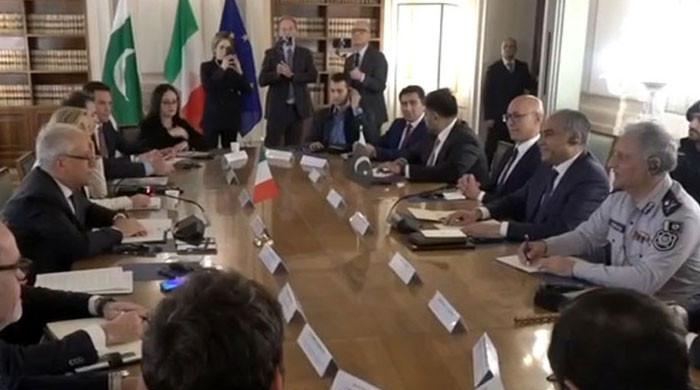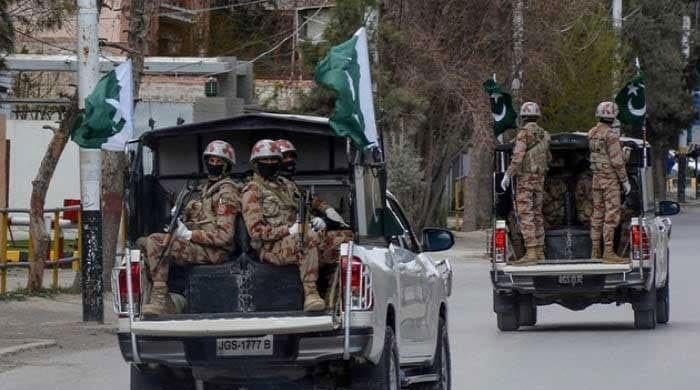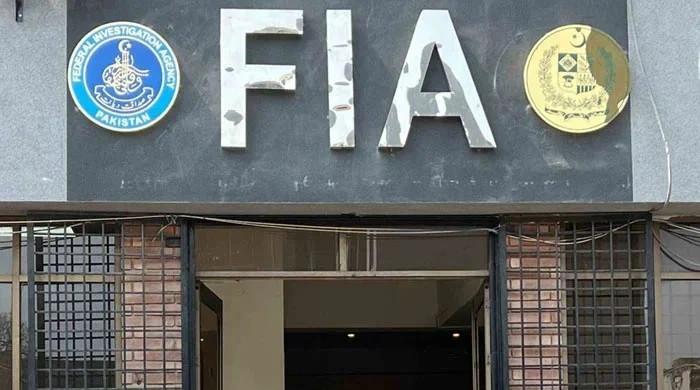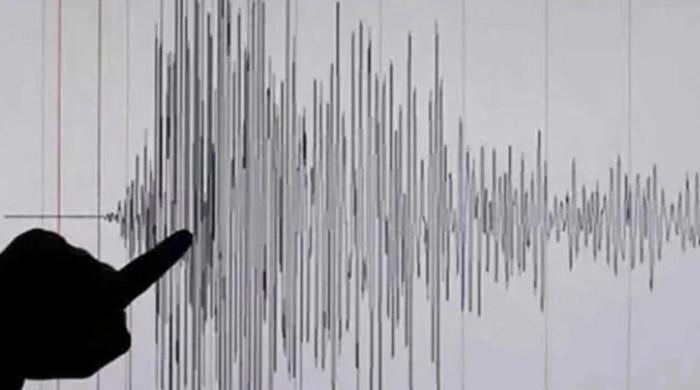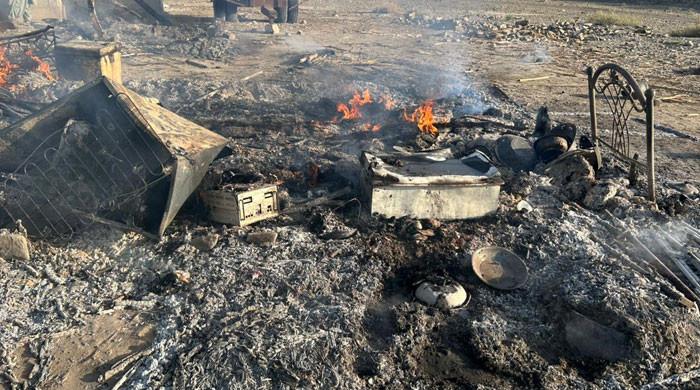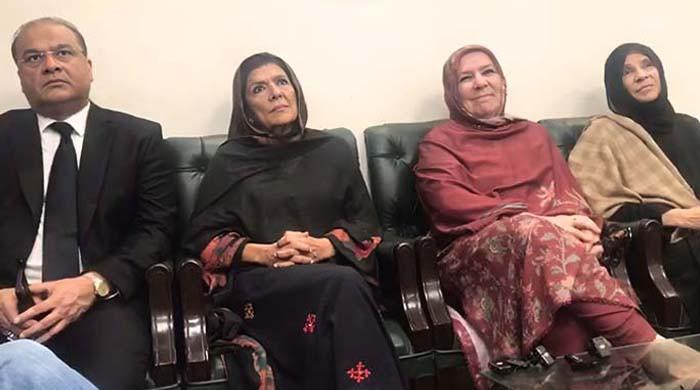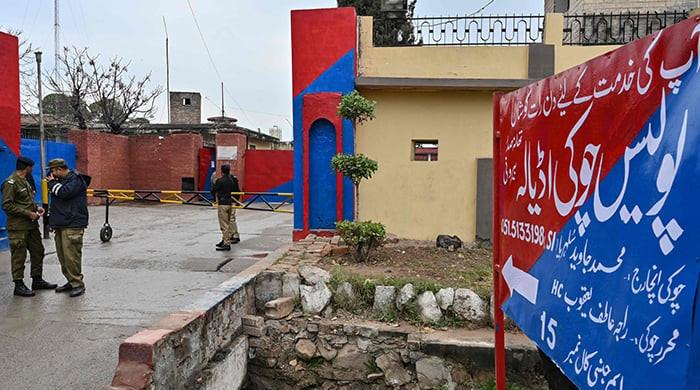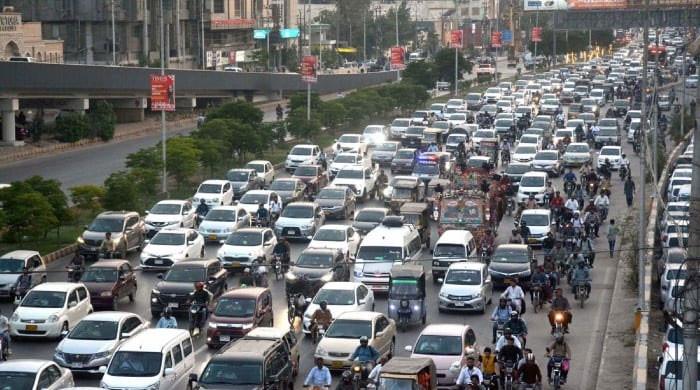Pakistani Asif Hafeez faces 23 years in jail in US drugs case
US judge rules that US govt didn't breach its plea bargain agreement with Pakistani national
June 05, 2025
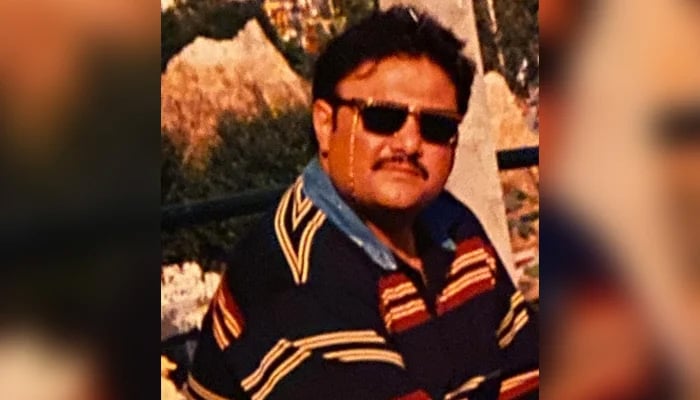
LONDON: A judge at New York Southern District court has ruled that the US govt didn't breach its plea bargain agreement with the Pakistani national, former gold trader Muhammad Asif Hafeez, in the high-profile drugs case in which he and four others are implicated including Bollywood star Mamta Kulkarni's husband Vicky Goswami.
Hafeez had filed a petition at the United States New York Southern District court arguing that the US govt was breaching the plea agreement terms with him; that he should be given only about 10 years jail term and that the government's proposed at least 276 months' imprisonment — around 23 years — would be a breach and therefore the court should rule against the government.
But Judge Victor Marrero of the court has ruled that "the Court finds that the Government did not breach the Plea Agreement, and, accordingly, orders the Defendant to adhere to the Plea Agreement's stipulated offense level and sentencing range under the United States Sentencing Guidelines" and that advocating for a sentence of at least 276 months’ imprisonment for Hafeez would be proportionate to the offence level and category.
On November 18, 2024, Hafeez pleaded guilty to one count of conspiracy to manufacture, distribute, and unlawfully import heroin into the United States and one count of conspiracy to manufacture, distribute and unlawfully import methamphetamine and marijuana into the United States. His lawyers said he had no choice under the harsh US conditions but to plead guilty.
According to the allegations contained in indictments charging Hafeez, from 2013 through the date of his London arrest in 2017, conspired with his co-defendants, Baktash Akasha Abdalla, Ibrahim Akasha Abdalla, Gulam Hussein, and Vijaygiri Anandgiri Goswami to import heroin into the US.
Each of these offences carries a maximum sentence of life in prison and a mandatory minimum sentence of 10 years in prison.
Baktash, 47, and Ibrahim, 36, previously pled guilty to conspiring to import and importing heroin and methamphetamine into the US.
Baktash was sentenced on August 16, 2018, to 25 years in prison, and Ibrahim was sentenced on January 10, 2020, to 23 years in prison.
The judge said that there was no language in the Plea Agreement obligating the government to seek a sentence below the Abdallas' sentences and Hafeez "does not allege that the government made any promises during plea negotiations to seek a sentence below the Abdalla's sentences".
The judge found that Hafeez during the plea allocution, while under oath, answered “no” to Magistrate Judge Stewart Aaron’s questions regarding whether, apart from the Plea Agreement, “any threats or promises [have] been made to you to make you plead guilty,” and whether “any understandings or promises [have] been made to you concerning the sentence that you will receive.”
The judge ruled: “The Court hereby ORDERS Defendant Muhammad Asif Hafeez to abide by the terms of the plea agreement.”
Originally from Lahore but based mostly in Dubai and London, Hafeez was arrested in London on August 25, 2017, and extradited to the US on May 12, 2023. He was imprisoned at the Belmarsh Prison where this correspondent met him and interviewed him about his side of the complicated story.
Baktash was the leader of an organised crime family in Kenya (the “Akasha Organization”), which was responsible for the production and distribution of ton quantities of narcotics within Kenya and throughout Africa and maintained a network used to distribute narcotics for importation into the US.
The US indictment also alleges that Hafeez has been involved in the drugs trade from about 1993 through 2017, allegedly conspired to import hashish and methamphetamine into the US.
In connection with this conspiracy, Hafeez and co-conspirators transported multi-ton shipments of hashish to Europe and North America.
Goswami testified in the US in 2019 about drug trafficking.
A transcription of Goswami’s testimony said he had previously met people, including representatives from the factory, at a hotel in Kenya.
Goswami then decided to become a cooperating prosecution witness against all his former accomplices.




